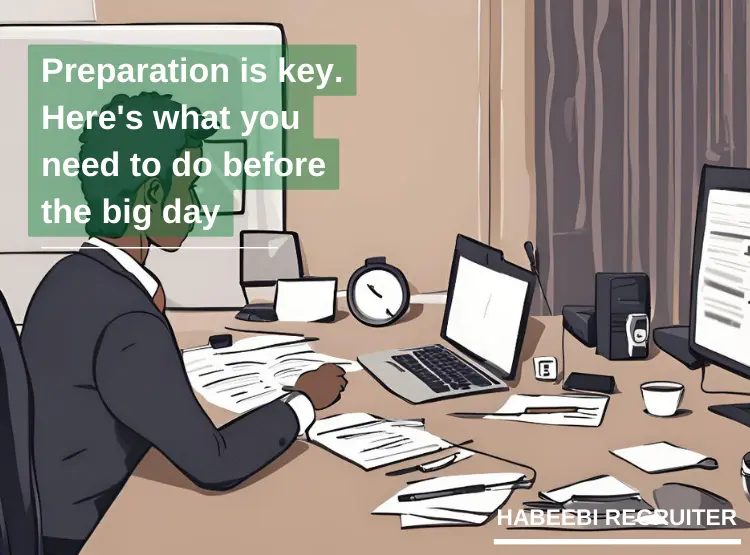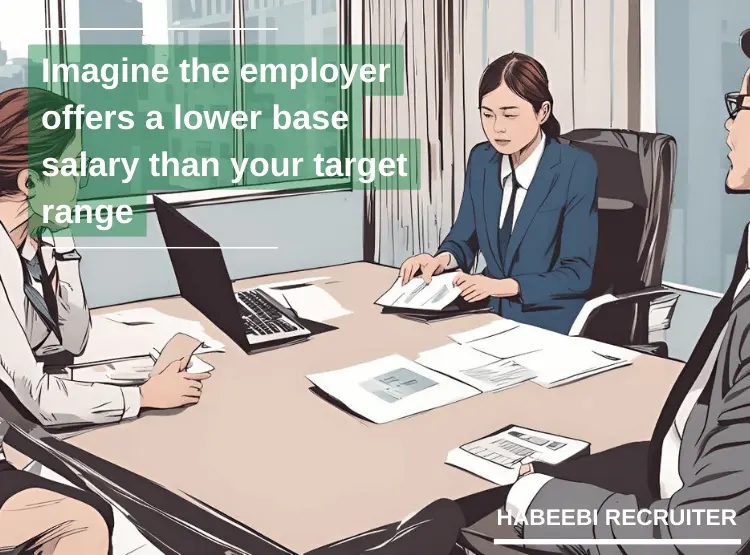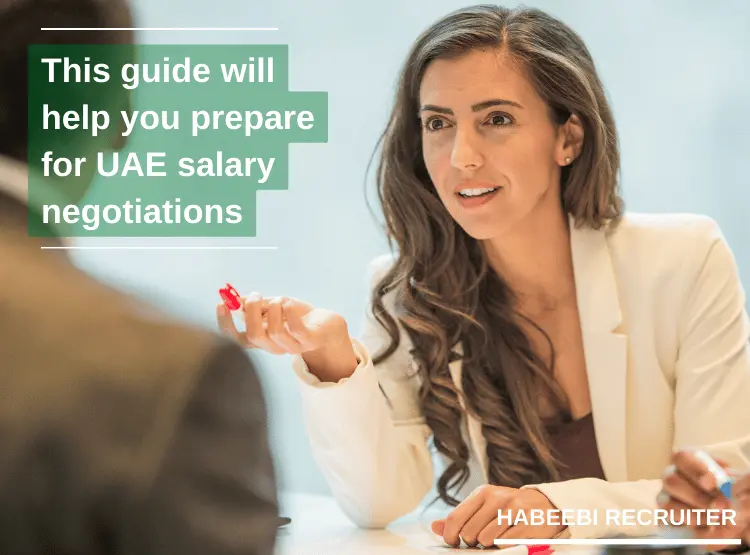Congratulations! You’ve landed your dream job in the UAE, but discussing salary can be intimidating. Unlike some Western countries, a direct approach might not work best here. However, with some preparation and cultural awareness, you can confidently negotiate your salary and get a compensation package that reflects your worth.
Dua for Job Seeking: اللهم يسر ولا تعسر واكمل ولا تكل وبارك لي فيما قَدَّرت
This guide will equip you for successful UAE salary negotiations. We’ll cover how to gather information, craft your value proposition, use effective negotiation tactics, and consider UAE-specific factors.
Before You Negotiate: Do Your Research

Preparation is key. Here’s what you need to do before the big day:
- Know Your Market Worth: Research industry salary benchmarks for your position and experience. Websites like Payscale, Glassdoor, and Bayt.com provide valuable insights into average UAE salaries. Gather data from multiple sources for a well-rounded view.
- Factor in the Cost of Living: The UAE has a high standard of living, and housing can be expensive. Calculate living expenses like rent, utilities, transportation, and groceries to determine your target salary. Consider variations across emirates; Dubai and Abu Dhabi will likely be pricier than smaller emirates.
- Quantify Your Achievements: Don’t just list skills and experience, showcase their impact. Provide examples of how your past accomplishments benefited previous employers. Use numbers whenever possible, like increased sales figures or improved efficiency metrics, to demonstrate your value.
- Research the Company: Learn about the company’s culture, size, financial health, and recent projects. This helps you tailor your approach and anticipate their salary range. Knowing their focus areas allows you to highlight how your expertise aligns with their goals.
- Practice Makes Perfect: Rehearse your negotiation points beforehand. Role-play with a friend or family member to refine your responses and anticipate potential questions from the employer. This will boost your confidence and ensure a polished presentation.
Why You’re a Top Pick: Value Proposition

Your value proposition is the core of your negotiation strategy. It communicates the unique skills and experience you bring to the company. Here’s how to create a compelling one:
- Focus on Solutions: Highlight how your skills solve problems for the company. Instead of saying, “I’m a skilled marketer,” explain how your marketing expertise led to a 20% increase in brand awareness for your previous employer.
- Quantify Your Impact: Whenever possible, use metrics to demonstrate the tangible impact you’ve had on past projects or roles. This provides concrete evidence of your value.
- Tailor it to the Company: Don’t present a generic value proposition. Research the company’s specific needs and challenges, and tailor your arguments to show how your skills directly address those needs and contribute to their success.
Negotiation Techniques: Secure Your Desired Package
Now, let’s explore key negotiation techniques to secure your desired compensation:
- Let Them Make the First Offer: This sets the baseline for negotiation and prevents you from undervaluing yourself.
- Focus on Value, Not Needs: While the cost of living is important, avoid basing your arguments solely on personal needs. Emphasize the value you bring and the positive return on investment you represent for the company.
- Use Data to Back Your Claims: Reference the salary data you gathered during your research to support your desired compensation range. Explain how your experience and qualifications justify a salary within that range.
- Be Prepared to Negotiate: Don’t expect to accept their initial offer. Prepare counter-offers in advance. This could include flexibility on your base salary in exchange for increased benefits, signing bonuses, or stock options. When considering benefits packages, be aware that those offered in free zones might differ from the mainland. Common benefits in the UAE include housing allowances, transportation allowances, and health insurance.
- Maintain a Positive and Respectful Tone: Remember, negotiation is a conversation, not a battle. Keep a professional and respectful demeanor throughout the process. Show your enthusiasm for the opportunity and your desire to reach a mutually beneficial agreement.
- Be Open to Compromise: Have a target salary in mind, but be prepared to find common ground. Negotiation is a two-way street, and some compromise may be necessary.
Negotiation Examples: Putting It into Practice

Imagine the employer offers a lower base salary than your target range. You can respond with something like, “Thank you for the offer. Based on my research and qualifications, I was hoping for a salary closer to [your target range]. However, I’m open to discussing other parts of the compensation package, such as [mention specific benefits you’d be interested in].”
By following these steps and strategies, you can approach your UAE salary negotiation with confidence and secure a compensation package that reflects your worth in the dynamic UAE job market.
What is basic salary?
Your basic salary is the negotiated amount you agree on with your employer, as stated in your employment contract. It’s important because it determines the end-of-service bonus you’ll receive.
Is there a minimum wage in the UAE?
No, unlike some countries, the UAE doesn’t have a mandated minimum wage. This means your salary is negotiated with your employer during the interview process.
What is included in a typical UAE compensation package?
Here’s a breakdown of what’s usually included in a UAE job offer:
- Basic Salary (as discussed earlier)
- Paid Leave: You’ll get paid time off, typically 30 days a year (21 days in the first year).
- Health Insurance: Basic government insurance is included, with some companies offering private options after probation.
- Recruitment & Visa Fees: The company usually covers these costs to bring you on board.
What other benefits might be offered?
On top of the basics, some employers offer additional perks. Negotiation is key to securing these! Here are some examples:
- Flights Home: Get reimbursed for your return flight after your contract ends.
- Accommodation Help: Get a housing allowance to ease the burden of finding a place to live.
- Transportation Perks: Companies might offer car allowances or help with public transport costs.
- Meal Allowance: Some companies provide an extra allowance to help cover your food expenses.
What is gratuity pay?
Think of gratuity pay as a bonus you receive for completing your contract. It’s a mandatory benefit companies are required by law to offer employees who finish their contracts.
How do I qualify for gratuity pay?
Here’s how you can qualify for gratuity pay:
- For fixed-term contracts, successful completion qualifies you.
- For unlimited contracts, you’ll need to be with the company for at least one year.
How is gratuity pay calculated?
Gratuity pay is based on your basic salary, not including allowances or benefits. Here’s the breakdown:
- First 5 Years: You get 21 days’ pay for each year you work.
- After 5 Years: It goes up to 30 days’ pay for each additional year.
Is there a limit to gratuity pay?
Yes, there’s a maximum limit. The maximum gratuity pay can’t be more than what you’d earn in 24 months at your basic salary.
Disclaimer:
- We list jobs submitted by employers. HabeebiRecruiter.com does not verify employers or guarantee job details.
- Be aware: legitimate jobs never require upfront payment
